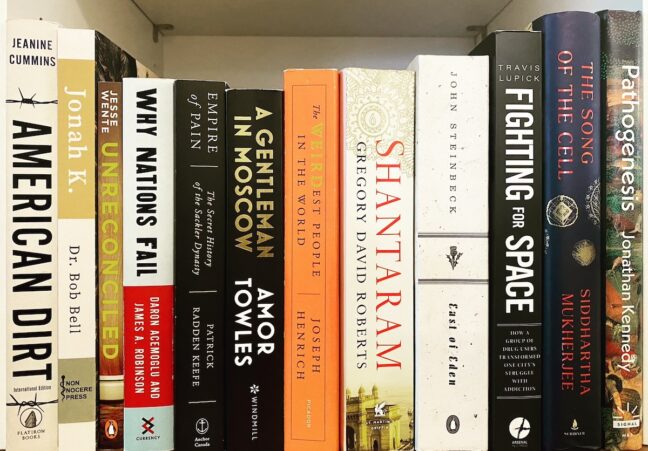Our annual delve back into the books we have read in the last year.
While I might have read fewer books in 2023, only twenty-two, they were among the biggest tomes I have read: 8,855 pages. The depth of research in each of these books is staggering. Drawn to more fiction than my typical year. Our ranking is subjective, albeit based on our recommendations to others.
Don’t miss the opportunity to make yourself better informed starting here
- The Song of the Cell by Siddhartha Mukherjee
- A Gentleman in Moscow by Amor Towles
- The Hundred Years’ War on Palestine by Rashid Khalidi
- Fighting for Space by Travis Lupick
- Pathogenesis by Jonathan Kennedy
- Why Nations Fail by Daron Acemoglu and James A. Robinson
- Shantaram by Gregory David Roberts
- American Dirt by Jeanine Cummins
- Unreconciled by Jesse Wente
Song of the Cell: An Exploration of Medicine and the New Human
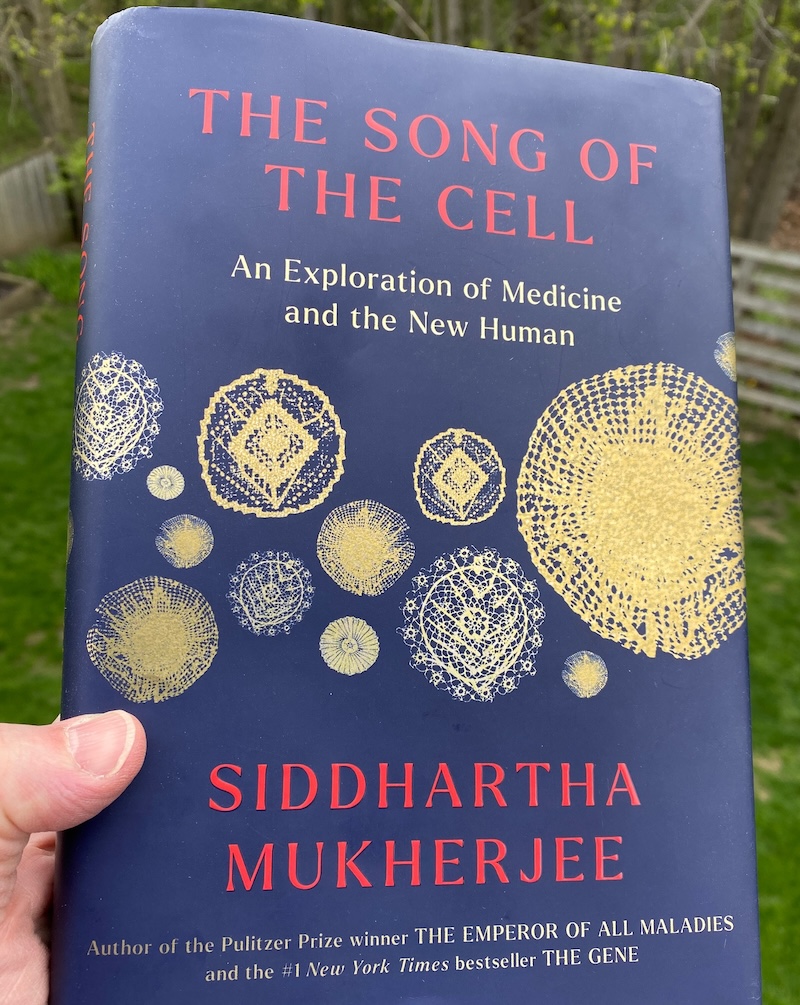
Song of the Cell: An Exploration of Medicine and the New Human by Siddhartha Mukherjee
A book about our innermost selves. How could one not be intrigued? Book of the year is medicine packaged in a suspenseful, page-turning novel. Our lingering competition between cell death and rejuvenation is akin to the ship of Theseus. A fascinating exploration of AIDS, cancer, blood transfusion, wound healing, infection, IVF, CRISPR, and sickle cell anemia. I have so many questions. Understandable why it made the New York Times Book Review 100 Notable Books 2022. A perfect complement to our work on the Canadian Best Practice Recommendations for the Topical Management of Malignant Cutaneous Wounds. The two previous books by Dr. Mukherjee The Emperors of All Maladies and The Gene already a triumph. We had highlighted both books in previous years. It also overlapped a little with another book we read, Growing Young: How Friendship, Optimism, and Kindness Can Help You Live to 100 by Marta Zaraska.
A Gentleman in Moscow
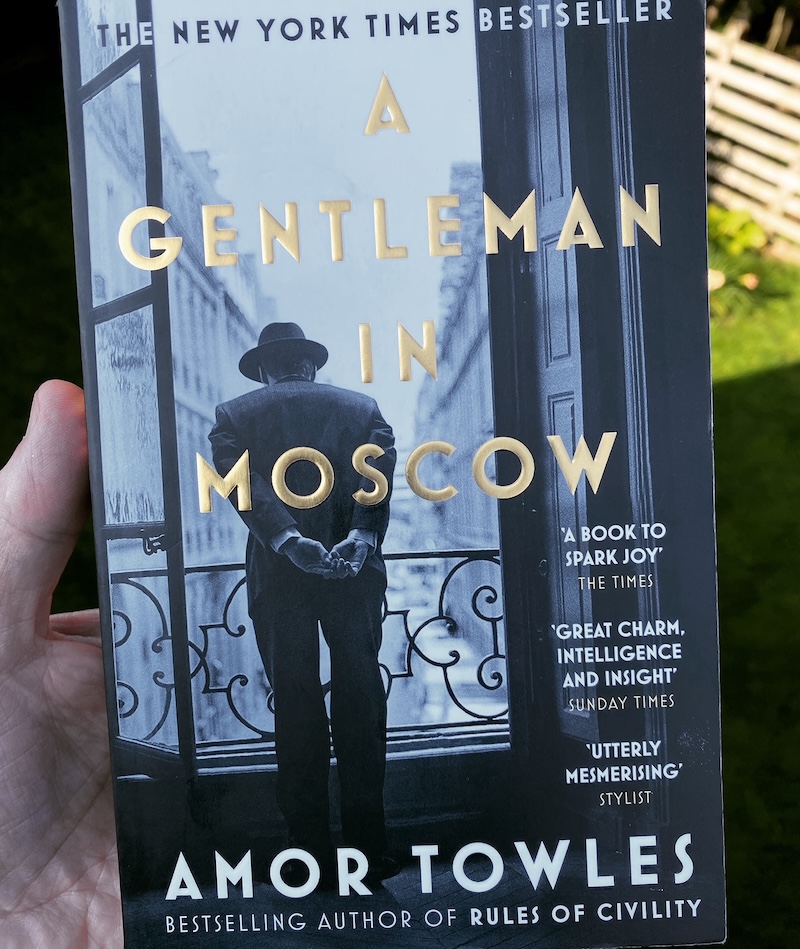
A Gentleman in Moscow by Amor Towles
I was engrossed in this eloquent book. Thank you to Cathy Harley, CEO of NSWOCC, for recommending this and sending me an Indigo voucher to buy it. Fabulous. One of the best fiction books I have read. So much history woven in about the Empire of Russia. An engaging story with many wonderful characters across multiple generations coming through the single setting of the book.
The Hundred Years’ War on Palestine: A History of Settler Colonialism and Resistance, 1917-2017
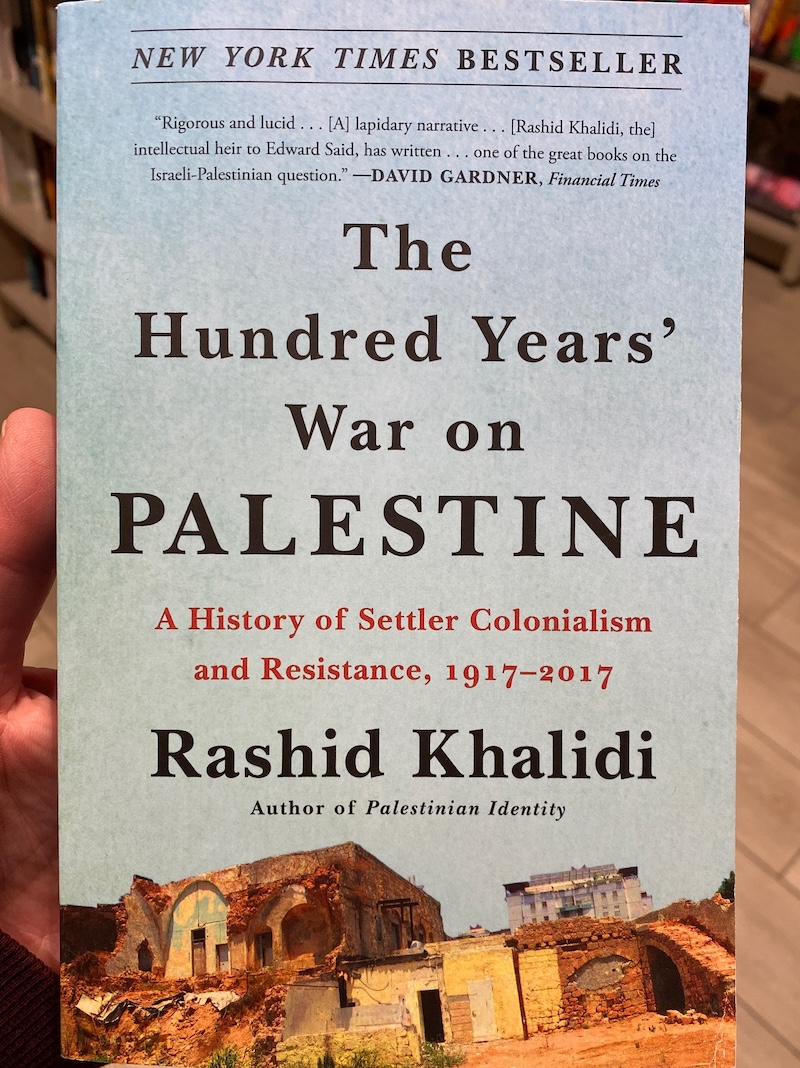
The Hundred Years’ War on Palestine: A History of Settler Colonialism and Resistance, 1917-2017 by Rashid Khalidi
I feel ashamed and complicit. We have such responsibility for the persecution of the Palestinian people. While I knew some of these facts, I quickly read this excellent book in the days that followed the October 2023 war. Before World War II, Truman had postulated that the only way for a Zionist Jewish state to exist would be through military force. That came true. Israel has become one the most powerful military forces in the world, a customer of the US. The size of Gaza is also overlooked. There are two million Palestinians squeezed into a land area the size of The Isle of Wight. We have now acknowledged colonization and stolen territory for Indigenous people in Canada and Aboriginal peoples in Australia. There we are making attempts at reparations. While that may be a difficult line, none of us should sponsor the killing of refugees, camps, and children. We have only legitimized the assault on Palestinians by labelling the PLO, Hamas, and Hezbollah as terrorists. As the UN, we have turned a blind eye to many blatant infringements of international law. Everyone should read this book and educate themselves further.
Fighting for Space | How a Group of Drug Users Transformed One City’s Struggle with Addiction
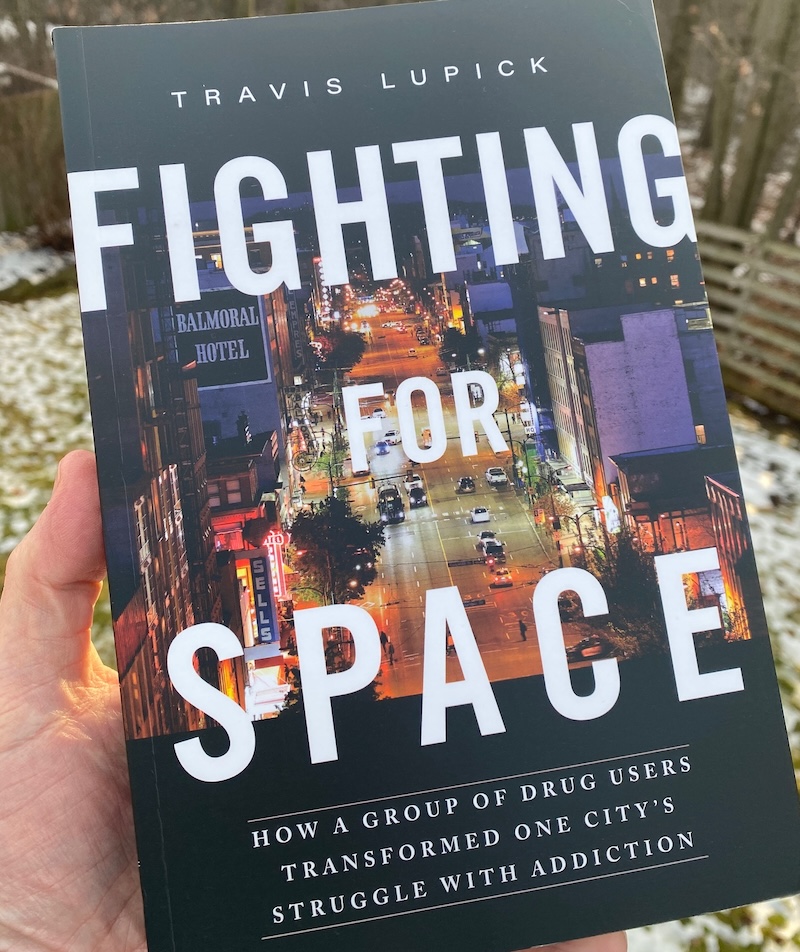
Fighting for Space: How a Group of Drug Users Transformed One City’s Struggle With Addition by Travis Lupick
I wanted to give a huge hug as I finished this book. I feel as though I have led a sheltered life. While I have helped support those at risk and impacted by homelessness, I knew little previously about addictions and harm reduction. Perhaps my ADHD allows me some sense of understanding and empathy. This is the first book in my journey of learning about harm reduction. I am very struck by the poetry and art created by many in this community, and something I would wish us to reflect in the Harm Reduction in Wound Care best practice recommendations with Nurses Specialized in Wound, Ostomy and Continence Canada, Harm Reduction Nurses Association, and Canadian Association of People Who Use Drugs in which I am a technical writer and project manager. The book enabled me to understand much more before visiting a Canadian Consumption and Treatment Services centre. I am beginning to learn why addiction is not a disease, why abstinence is not a realistic goal, and why a ‘War on Drugs’ is counterproductive. I value one book leading me to the next. Now I am reading In the Realm of Hungry Ghosts by Dr. Gabor Maté and Busted by Susan Boyd.
Pathogenesis: A History of the World in Eight Plagues
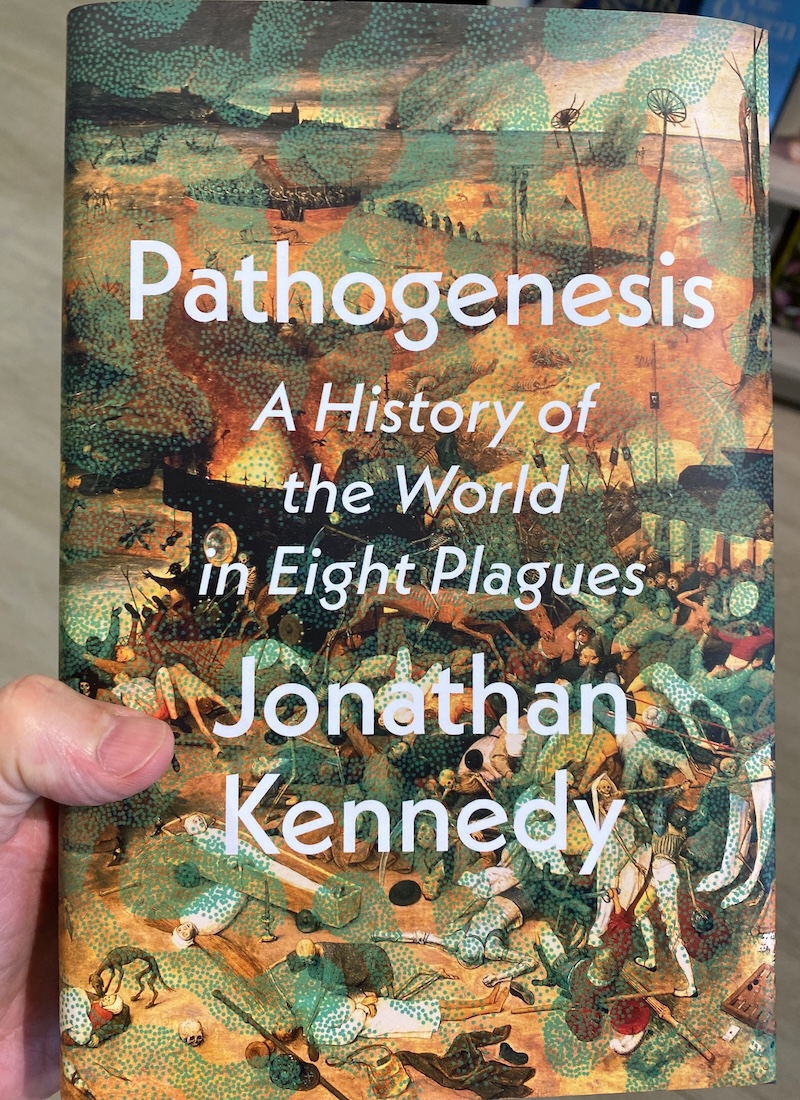
Pathogenesis: A History of the World in Eight Plagues by Jonathan Kennedy
Masterfully researched and communicated. We have known for some time that one of the oldest continuous battles on earth has been between bacteria and viruses. Each tries to disable the other and keep the other in check. In many instances, we are the host. It is astonishing that with so many microbes, we are able to maintain balance without being overcome. An engrossing perspective at times in opposition to Guns, Germs and Steel: the Fates of Human Societies by Jared Diamond. It is good to have alternative viewpoints. I became a little lost in keeping track of the eight plagues across the globe. It was a wonderful follow-up to having read The Song of the Cell earlier in the year. Again, exploring the role of RNA and contemporary versus HIV-AIDS, measles, polio, Ebola, SARS and COVID-19. I might have to read it a second time.
Why Nations Fail: The Origins of Power, Prosperity, and Poverty
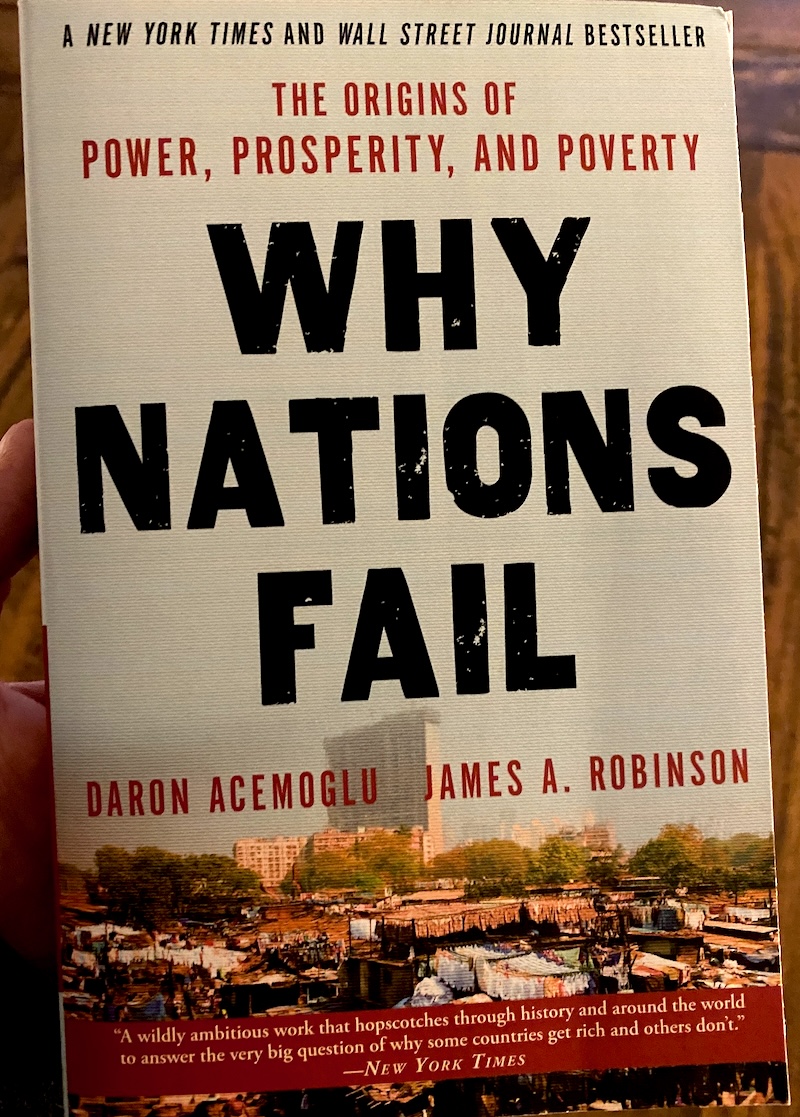
Why Nations Fail: The Power of Power, Prosperity, and Poverty by Daron Acemoglu and James A. Robinson
We should learn from our history. Poignant. Why we shouldn’t intervene in the war in overseas countries and expect to install a new government with expectations of changes towards democracy and away from poverty, or why foreign aid invariably fails. The book brought new terms and concepts. Inclusive political and economic institutions versus extractive political and economic institutions. The divergence from the nineteenth century explains much of the world order we see today. Poignant. Only time will tell whether the authors’ projections on what will happen to some of the biggest growing economies will falter because they are built on extraction. An interesting book to view alongside Prisoners of Geography. They leave few stones and parts of the world unexamined, including why a free media is necessary to keep checks and balances on political institutions in place.
Shantaram
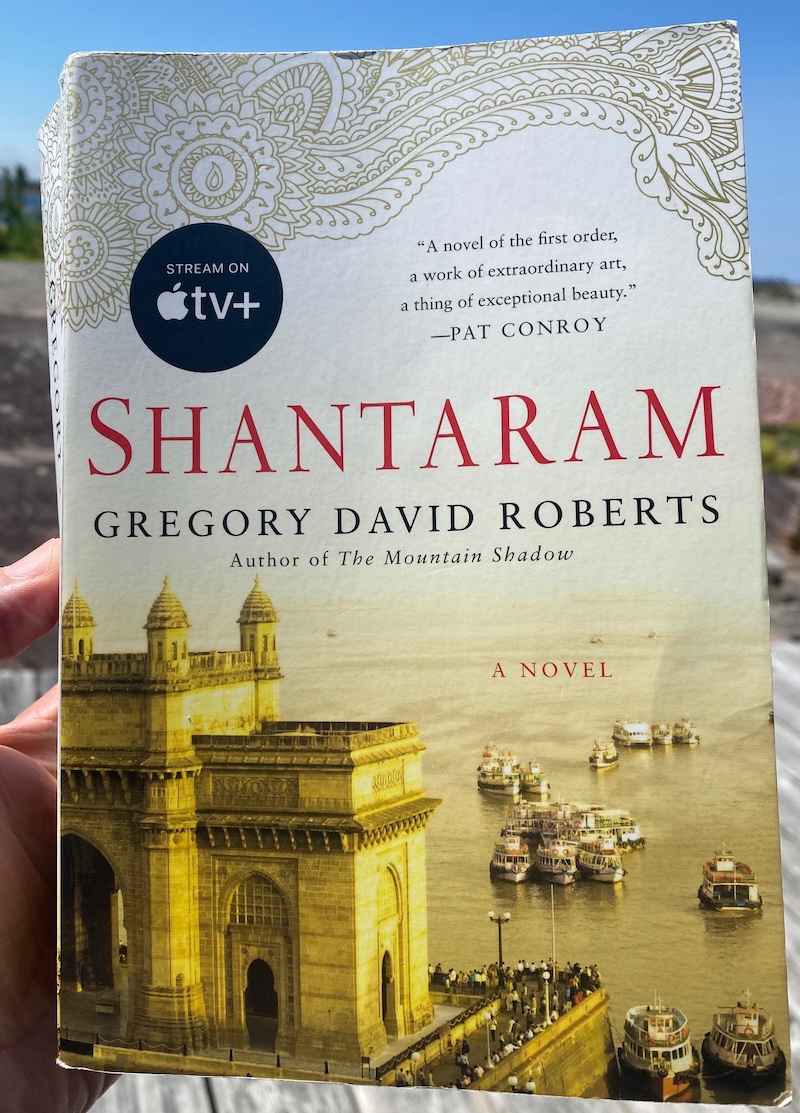
Shantaram by Gregory David Roberts
It is an exquisitely well-written book. The quality of writing makes this 933-page tome so absorbing with its fabulous true story and descriptive prose of Bombay, India, and wider region. It is a remarkably profound piece of work. Our brilliant friend Anne Marie Fannon had spent a year reading this book so I vowed to try and read it within a month. I succeeded. I look forward to watching the adaptation for TV. This year, I now have Roberts’s 880-page sequel, The Mountain Shadow, to read, continuing the story of Lin.
American Dirt
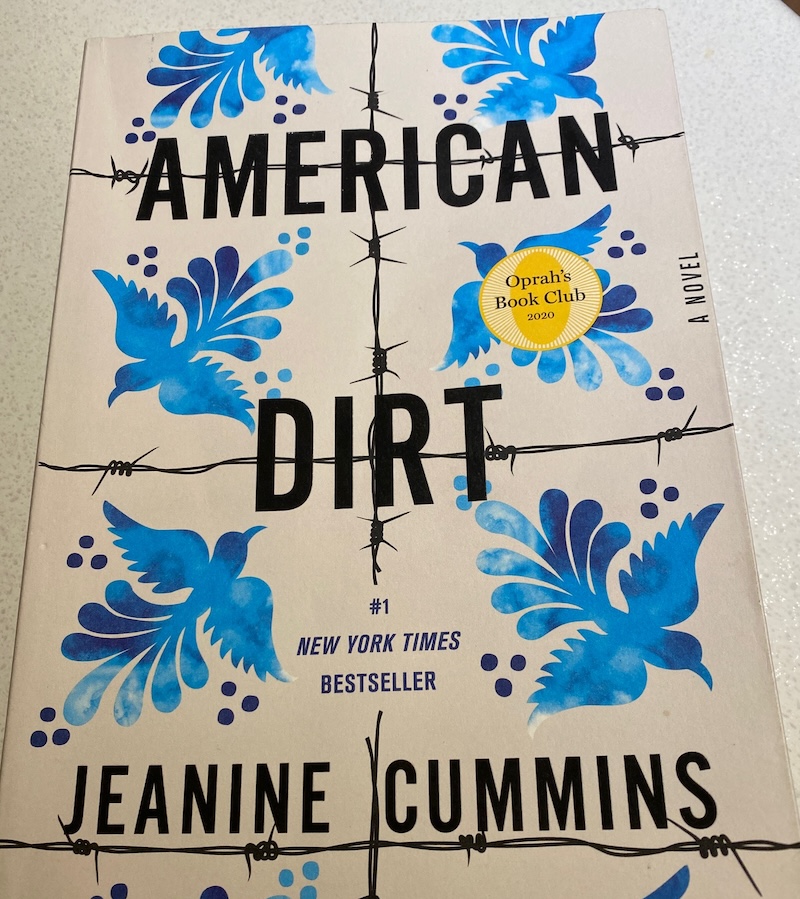
American Dirt by Jeanine Cummins
A captivating story about a journey from Acapulco, Mexico to America. I was gripped from the beginning following Lydia and Luca. It had me consulting Google Maps following their route. What is perhaps most disturbing about this book is the realization that rather than an individual experience, this scenario plays out every day of the year. Another passing fact that struck me was that many women in areas of Mexico may not have a driving licence because it would never be safe for them to drive in a car on their own. In Canada, we take it for granted that a young woman will learn to drive a car and be safe to go out alone. Glad I took the time to read this excellent book.
Unreconciled: Family, Truth, and Indigenous Resistance
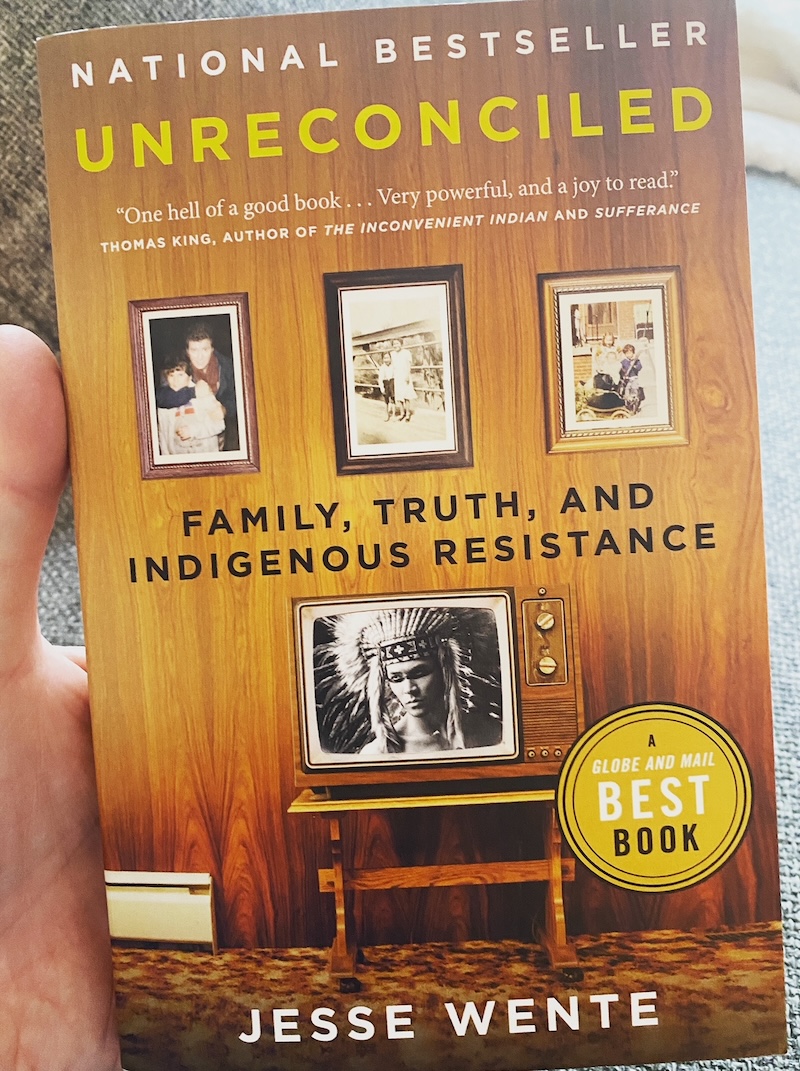
Unreconciled: Family, Truth, and Indigenous Resistance by Jesse Wente
Another immensely thought-provoking book every Canadian should read. Another … after reading Seven Fallen Feathers by Tanya Talaga. Another after our last year recommendation, Five Little Indians, by Michelle Good. We maintained the theme and read Jonak K by Dr. Bob Bell and Empathy by David Johnston. Each brought more and more to life about Indigenous people. Having read Unreconciled, I was tasked to write a blog post about Water First for Perry Group Consulting. I felt horribly inadequate as a middle-aged white Caucasian to be writing about Indigenous people and work. Books should challenge our beliefs. Is the whole conversation around Truth & Reconciliation for our benefit to make us feel better? Again, the terms we have applied. I have a new perspective on land acknowledgements. The whole area in which we live and work is within the 6-mile Haldimand Tract that was stolen from the Indigenous people.
Appreciating how much I still have to learn, I enrolled in the University of Alberta Indigenous Canada history course. It is free.
We hope these books help make you better informed. More than anything, these wonderful books took us to different parts of the world we have never visited. We should learn from history. Other books this year included Growing Young: How Friendship, Optimism, and Kindness Can Help You Live to 100 by Marta Zaraska, The WEIRDest People in the World: How the West Became Psychologically Peculiar and Particularly Propserous by Joseph Henrich, East of Eden by John Steinbeck, The Wager: A Tale of Shipwreck, Mutiny and Murder by David Grann, Jonak K. by Dr. Bob Bell, Next in Line by Jeffrey Archer, The Girl with the Eagle’s Talons by Karin Smirnoff, To Kill a Mockingbird by Harper Lee, Empire of Pain by Patrick Radden Keefe, Empathy: Turning Compassion Into Action by David Johnston, and Apple II Age by Laine Nooney.

